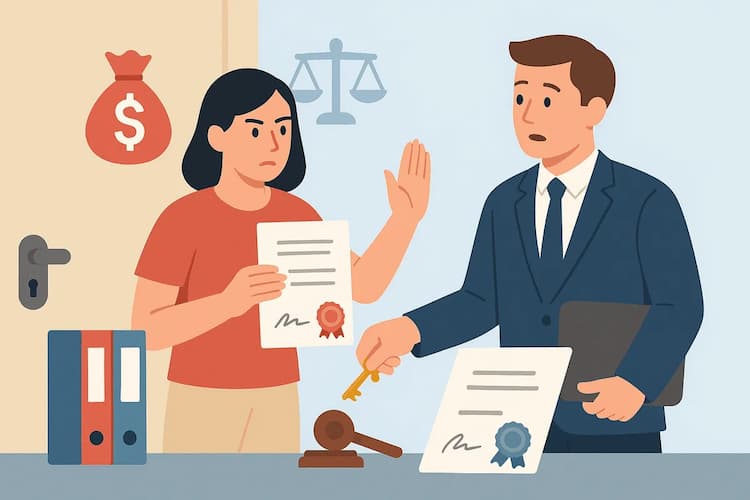
How to Store Najem Okazjonalny Documents
How to properly store Najem Okazjonalny documents in Poland: the notarised lease, tenant’s statement consenting to vacate, owner’s address statement/consent, and receipts. Paper vs. digital copies, tips and risks.
How to store Najem Okazjonalny documents
A Najem Okazjonalny lease comes with a full document pack: the notarised lease, the tenant’s statement consenting to vacate, the owner’s statement providing an address for potential relocation, the owner’s consent to use that address, and additional attachments. These papers are the legal backbone protecting both landlord and tenant. Improper storage or loss of even one document can lead to disputes, loss of the fast-track eviction right, and lengthy litigation. That’s why storing Najem Okazjonalny documents requires care.
Which documents must be kept
- The Najem Okazjonalny lease itself — notarised.
- The tenant’s statement consenting to vacate (oświadczenie najemcy).
- The owner’s address statement (with the relocation address).
- The property owner’s consent — a mandatory attachment to the statement.
- Correspondence and payment receipts — evidence that the lease terms are being fulfilled.
Where to keep the documents
It’s best to keep multiple sets of Najem Okazjonalny documents, preferably in different places:
- With the landlord — the original lease and all attachments.
- With the tenant — copies of the lease, statements and receipts.
- With the notary — certified copies stored in the archive.
Safe storage tips
- Use folders or archive boxes. Keep the entire set together to avoid misplacing items.
- Make copies. Scan all documents and keep digital versions.
- Use cloud storage. Store scans in Google Drive, Dropbox or another trusted service.
- Protect data. Use passwords and encryption for digital copies.
- Retention period. Keep documents for at least 3 years after the lease ends — in case of disputes.
What to avoid
- Don’t rely on digital files only without paper originals.
- Don’t leave originals with third parties (except the notary).
- Don’t rely solely on messages — legal force comes from the notarised lease.
Risks of improper storage
- The landlord may lose the ability to initiate fast-track eviction.
- The tenant may lose evidence of compliant behaviour and payments.
- In court, lack of documents severely weakens your position.
FAQ
Can I keep documents only in digital form?
No. Originals are mandatory. Digital copies are a supplement, not a replacement.
Who is responsible for storage?
The landlord keeps originals; the tenant keeps copies. Both should have access to the full set.
Do I need a notarised copy?
Yes — it’s an extra safeguard if the original is lost.
Conclusion
Storing Najem Okazjonalny documents isn’t a mere formality — it’s the key to legal safety. Originals should stay with the landlord, copies with the tenant, and the notary provides an additional layer of protection. Scanning and cloud storage help minimise risk. Well-organised storage keeps both sides at ease.
Keep your documents in order — choose a guarantee for Najem Okazjonalny
Check what's includedKeep your documents in order — choose a guarantee for Najem Okazjonalny
Check what's includedUseful materials and fresh news
Read tips, legal explanations, and important updates for tenants and landlords.

























